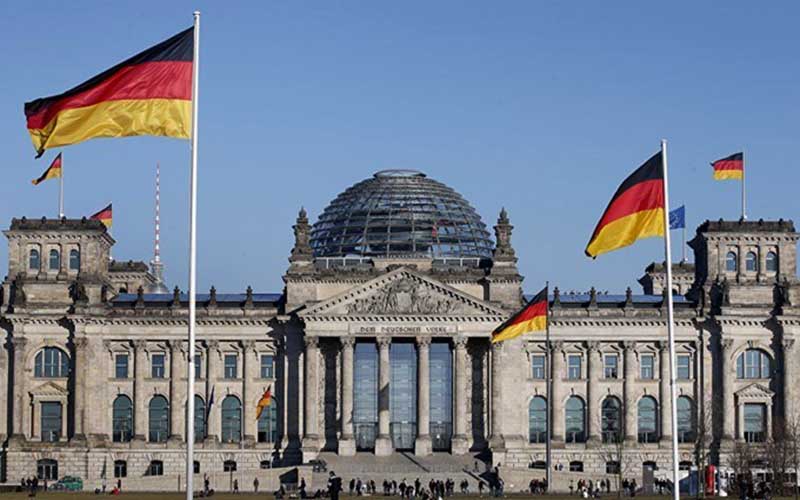Although the result of elections announced immediately but it may take several months until negotiations to form a coalition government come to fruition. What is certain from opinion polls stipulates that, none of the parties will be able to win the absolute majority and form a government alone. Perhaps, three following major party developments within the past few years could be taken into account which made it more difficult for two major political parties of the country, i.e. CDU and SPD:
Emergence of the far-right Party of Alternative for Germany (AfD)
Growing of Greens Party popularity
Growing of Free Democrats Party
The important point in opinion polls is the sudden grow of Social Democratic Party (SPD) popularity within the recent months which has pushed up the middle-left oriented party with about 25% of votes slightly behind the top of the list of German parties. Part of the success is indebted to Olaf Scholz, Leader of the party who managed to win the positive attention of many (observers) in comparison with his rivals. He was particularly very successful in debates. Scholz is currently Vice Chancellor of Germany and Federal Minister of Finance. Social Democratic Party is amongst old parties in Germany with a long record which dates back to Weimar Republic and represented by personalities like Friedrich Ebert, Willy Brandt, Gerhard Schroder during the party’s life. The Party has been a partner to Merkel’s coalition government since 2013. Olaf Scholz has the greatest chance to win and becomes the next Chancellor of Germany.
According to opinion polls, Armin Laschet, candidate of Christian Democrat Party is in the second place and Annalena Baerbock has also won the next place. It should be mentioned that Armin Laschet’s popularity was tarnished to some extent because of his laugh before the cameras in the course of the recent floods. Moreover, a considerable part of the declined popularity of this major party was due to the personality characteristic of its candidate. Although Greens Party had a growing popularity in opinion polls for a short period, but now it holds the third place. Yet, if we compare the popularity of the Environmentalist party with its previous rate in 2017, it will become one of the winners of the competition. Most probably, it will play a role as a junior partner of the next government. On the other hand, the potential presence of Greens Party in coalition will strengthen the trend in other countries such as France where the presidential election will be held next year. The Greens Party concentrates on issues like climate changes and social justice. Liberal Party, FDP (Free Democrats Party), who has won the fourth place in opinion polls, may play a decisive role in the coalition of the next government.
On the far-right trend, according to opinion polls, Alternative for Germany (AfD) Party will remain, with a slight reducing of popularity, at the same level of the previous term and thus, its popularity will not grow. Yet, some of the concepts of far-right paradigm such as opposition to influx of migrants within recent years have opened its way to political literature of other parties too. From this point of view, the pause on the growth of the party does not necessarily mean the failure of far-right, especially when we notice that xenophobia and crimes emanated from hatred with racial background have also grown within this period in Germany. Far-right party and euro-sceptic Alternative for Germany Party has no chance for cooperation in any scenario in a coalition government because unlike their Austrian and Italian counterparts, German parties have boycotted the political trend and will avoid cooperating with the party at federal level. Yet, far-right will continue to live in Eastern states of Germany as a local and indigenous power.
It is necessary to mention that a remarkable percentage of voters have not decided yet and they are hesitant. However, there is almost no doubt that the next government will be again a coalition government. One of the scenarios to form the next government in Germany is a coalition of Social Democrats, Greens and Free Democrats, which is widely called as traffic light coalition because of their colors. Although, there will be many differences of opinions between Free Democrats and Social Democrats in this possible coalition. Based on this, there are other possible coalitions such Christian Democrats’ presence instead of Social Democrats in the above coalition (called Jamaica Coalition) or the presence of Left German Party instead of Free Democrats.
In Brussels as the European Headquarter there are many eyes pinned at Berlin waiting for the upcoming election. It is obvious that political arrangement of parties in Germany, as one of the major European powers, will have its effects at regional and global sphere. On one hand, in view of the upcoming elections in France and Hungry as well as current issues in Europe ranging from Corona virus pandemic to immigration, populism, relations with Russia, terrorism, climate changes, debate on the rule of law, and so on, many observers have started to become concerned about political future of the country.
At European level, parallel with the growing populism and nationalism during the past several years that led to results such as Brexit, Merkel government always tried to defend European Union’s position and integration as a symbol of liberal order. From other hand, President Macron has not been able to win the same popularity of Merkel as the most influential supporter of the European Union. Some people are concerned that at the end of Merkel’s tenure of office, European Union will lose one of its key features and supporters. Along with them, there are some people who believe that the end of Merkel era means the gradual termination of Germany’s capacity to lead the European Union and reduction of reliance on the country.










0 Comments